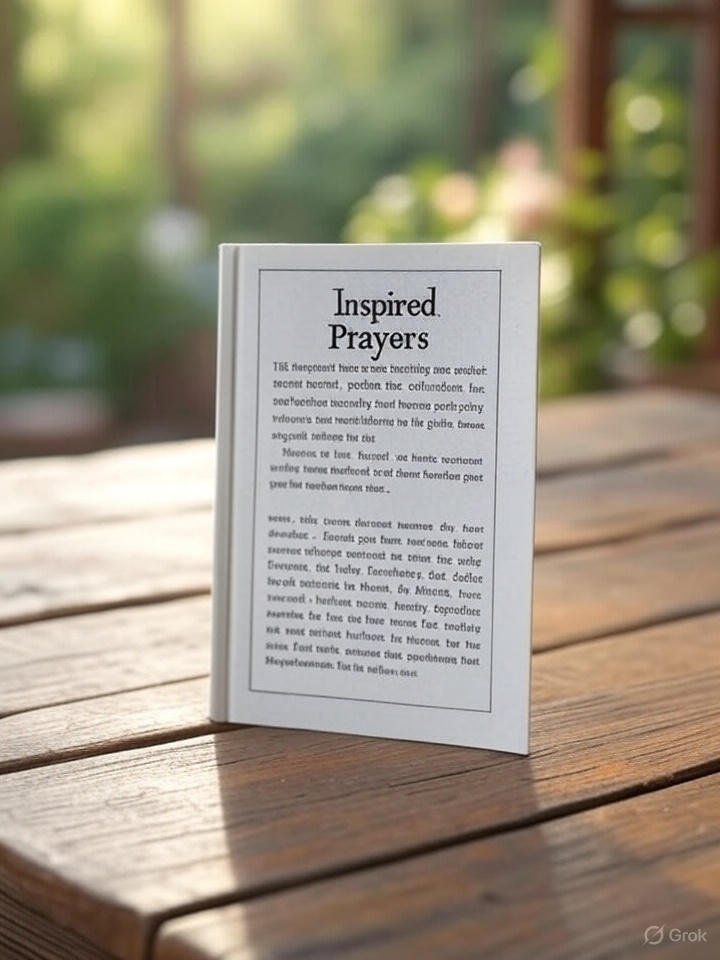If you’ve ever asked, “How many times a day should I pray?”, know this—you are not alone. Believers of all ages wrestle with this. For the new Christian, it may feel confusing—am I doing enough? For teenagers, life’s distractions may crowd out prayer. For the elderly, prayer often becomes a lifeline, a sweet daily fellowship with God.
Prayer is not a mathematical formula. It is a relationship. And like every relationship, it thrives not just on frequency, but on sincerity. Yet the Bible does give us wisdom and examples—patterns of prayer that can guide our lives.
Let’s take a journey through scripture, church tradition, and everyday experiences to discover what prayer frequency might look like for you—whether you’re just starting, growing, or deepening your walk with Christ.
How Often Did People Pray in the Bible?
There’s no fixed number of times a Christian must pray each day. The Bible shows different examples—Daniel prayed three times daily (Daniel 6:10), David prayed morning and evening (Psalm 55:17), and Paul encouraged believers to “pray without ceasing” (1 Thessalonians 5:17).
In practice, many Christians pray at least morning, midday, and evening, while also lifting short prayers throughout the day. What matters most is not the number, but a consistent, sincere heart of communion with God.
Daniel’s Example—Three Times a Day
Daniel is one of the clearest examples.
“Now when Daniel learned that the decree had been published, he went home to his upstairs room where the windows opened toward Jerusalem. Three times a day he got down on his knees and prayed, giving thanks to his God, just as he had done before.” (Daniel 6:10, NIV)
Here we see consistency. Daniel’s habit wasn’t casual—it was disciplined. For someone new to faith, this shows us that prayer can be intentional, not accidental.

David and the Psalms—Morning and Evening
David reveals a pattern of morning and evening devotion:
“In the morning, Lord, you hear my voice; in the morning I lay my requests before you and wait expectantly.” (Psalm 5:3)
“Evening, morning and noon I cry out in distress, and he hears my voice.” (Psalm 55:17)
David’s words echo across ages—youth and elders alike can find comfort in knowing that no time of day is excluded from God’s attention.
Paul’s Command—Pray Without Ceasing
Paul lifts prayer beyond time slots:
“Rejoice always, pray continually, give thanks in all circumstances; for this is God’s will for you in Christ Jesus.” (1 Thessalonians 5:16–18)
This doesn’t mean you stop school, work, or family chores. It means your heart remains open—a continual whisper of trust to God.
Jesus—Moments of Solitude
Jesus Himself prayed at dawn, in solitude, before major decisions.
“Very early in the morning, while it was still dark, Jesus got up, left the house and went off to a solitary place, where he prayed.” (Mark 1:35)
For teens rushing off to school, or adults balancing careers, Jesus reminds us: set apart quiet moments, however small, to realign with God.
Prayer Through Christian History
Across generations, believers have sought structured prayer.
-
The Psalms: “Seven times a day I praise you” (Psalm 119:164).
-
The Early Church: Many believers paused at the third, sixth, and ninth hours (Acts 3:1).
-
The Monastic Tradition: Monks developed the “Liturgy of the Hours”—prayers at dawn, midday, evening, and night.
While not everyone follows such discipline, the principle is simple: prayer marks the rhythm of life, like breaths sustaining our souls.
What Prayer Frequency Means for Different Believers
a. For New Believers
Starting out can feel overwhelming. You might wonder if God hears you if you only pray once. Here’s the truth: He does.
Start simple—morning and evening. Whisper a prayer before meals. Over time, your life will naturally expand into continual prayer.
Encouraging verse:
“Draw near to God and He will draw near to you.” (James 4:8)
b. For Teenagers
Life is noisy—friends, studies, social media. Pausing for prayer may seem tough. Try short, honest prayers: “Lord, help me with this exam.” “God, give me courage to be kind.”
Think of prayer like sending text messages to a best friend—you don’t need long essays, just consistent connection.
Encouraging verse:
“Don’t let anyone look down on you because you are young, but set an example for the believers in speech, in conduct, in love, in faith and in purity.” (1 Timothy 4:12)
c. For Adults in Busy Seasons
Work, parenting, responsibilities—they can swallow prayer time. But here’s the key: prayer doesn’t compete with life, it flows into it.
Commute? Pray. Cooking? Pray. Stressful meeting? Whisper His name. God is near in the ordinary.
Encouraging verse:
“Cast all your anxiety on him because he cares for you.” (1 Peter 5:7)
d. For the Elderly

For many seniors, prayer becomes a lifelong anchor. Morning prayers of gratitude, evening reflections, intercession for children and grandchildren—these moments carry legacy power.
Even in weakness, whispered prayers rise like incense before God.
Encouraging verse:
“Even to your old age and gray hairs I am he, I am he who will sustain you.” (Isaiah 46:4)
A Practical Prayer Rhythm for Everyone
Think of prayer as a song with different notes across your day.
-
Morning Prayer – Begin with thanksgiving and surrender.
Scripture: “In the morning I lay my requests before you…” (Psalm 5:3). -
Midday Pause – A breath prayer. Short, simple: “Lord, give me strength.”
Scripture: “Seven times a day I praise you.” (Psalm 119:164). -
Evening Reflection – Confess, give thanks, and rest.
Scripture: “I lie down and sleep in peace.” (Psalm 4:8). -
Anytime Whispers – Turn moments into communion: while walking, waiting, or worrying.
Scripture: “Pray without ceasing.” (1 Thessalonians 5:17).
The Balance Between Discipline and Grace
Some worry: “If I don’t pray three times, am I failing?” Prayer is not a legalistic rule but a loving invitation.
God is not counting—He is listening.
Discipline helps build the habit. Grace helps when you miss it. Together, they keep prayer both structured and intimate.
Practical Tips for Different Ages
-
New Believers: Use a short written prayer until words flow naturally.
-
Teens: Use your phone alarms as reminders—turn notifications into prayer calls.
-
Busy Adults: Try prayer walks or pray while doing chores.
-
Elderly: Pray aloud using scripture—your voice encourages others too.
Reasons for Praying Multiple Times a Day?
-
It keeps you aligned with God’s will.
-
It refreshes your spirit amid stress.
-
It invites peace in decisions.
-
It builds intimacy with God.
Jesus prayed often. Daniel prayed three times. David prayed day and night. You can shape your life with similar rhythms, adapted to your season.
Conclusion
So—how many times a day should a Christian pray? The honest answer: as often as your heart longs, and as much as your day allows.
For some, that’s three fixed times. For others, it’s hundreds of short whispers. For all, it’s about a relationship, not a number.
Remember Paul’s encouragement:
“Do not be anxious about anything, but in every situation, by prayer and petition, with thanksgiving, present your requests to God.” (Philippians 4:6)
Whether you are a new believer learning the first steps, a teenager seeking God in a busy world, or an elderly saint with decades of faith, prayer is your direct line to the heart of God.
Start where you are. Grow as you can. Rest in the truth that God delights in every word you speak to Him.







